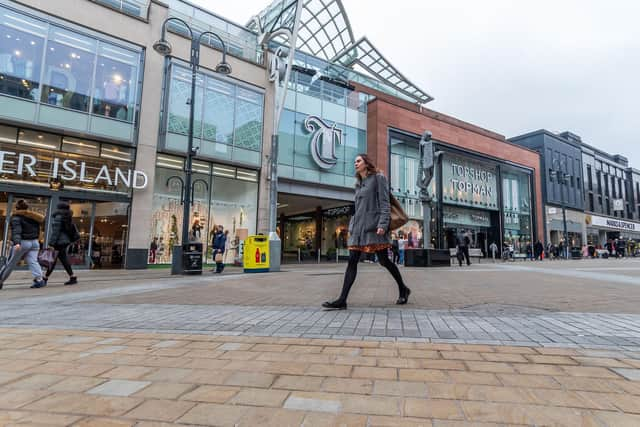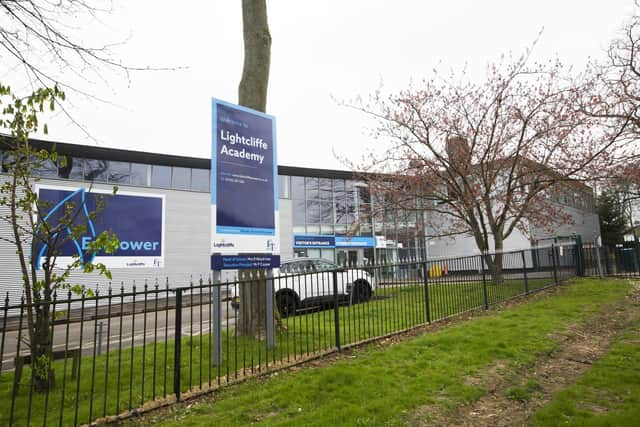Why locking school toilets is problematic for children with bladder and bowel conditions - Laura Reid
By only allowing pupils open access to the toilets before and after school, and at lunch and break times, it was, claimed parents, forcing students to make a choice between queuing for the loo or eating their dinner at lunchtime.
Of course, children should be given ample opportunity to do both. But what I find most problematic about this scenario is the challenges it presents for anyone with medical conditions which impact the bowel or bladder. Trust me, I know.
Advertisement
Hide AdAdvertisement
Hide AdLet me stress, first of all, that the school is far from alone in adopting this policy. Indeed, a quick search of the web for ‘school toilets locked in lesson times’ brings up a whole raft of results, from newspaper articles quoting ‘outraged’ parents, to ‘toilet procedure’ documents from various schools and academy trusts.


Notable also is an article from ERIC, the children’s bowel and bladder charity, on what pupils can do if school toilets are locked during lesson times.
That this even exists suggests to me that not only is the policy widespread, but that it’s causing unnecessary distress to children and young people with bowel and bladder conditions up and down the country.
Halifax-based Lightcliffe says, like at many other secondary schools, students are encouraged to go to the toilet outside of classes to avoid disruption to lessons.


Advertisement
Hide AdAdvertisement
Hide AdOther schools have cited vandalism to the loos or safeguarding concerns - staff aren’t on hand close by to supervise the toilets during class time should any issues arise - as reasons why access is restricted during lessons.
I do understand the concerns - children certainly shouldn’t be vandalising the facilities. Nor should they be aimlessly wandering around the school unattended or scrolling their phone in a cubicle or applying make up in the mirrors (you get the gist), using a request to go to the loo as permission to bunk off from lesson for a while.
But is it right that because of this small minority an entire school of children, children with the same needs to use the bathroom as any of us adults and the basic human rights to do so, are being hindered in being able to access a toilet when they need it?
I acknowledge that it is a complex matter and quite what the answer is to the above problems, I admit, I don’t know. But what I am sure of is that making toilets difficult to access for a whole school of pupils is not it.
Advertisement
Hide AdAdvertisement
Hide AdI say hindered and not deprived because, rightly so, there are generally exemption measures in place, which do allow pupils to leave lesson to use the loo, particularly if they have medical conditions.
But to only have certain toilets unlocked, potentially at the opposite end of the school to where an individual is studying, or to have them all locked and therefore require pupils to get hold of a key before they can use them, is problematic for anyone experiencing urgency.
I can remember missing days of learning, off sick because of IBS flare ups. There was absolutely every possibility of me going to school and not being able to access a toilet quickly if I needed one. I could not risk it, there’s no way that the anxiety I suffer tied to my IBS would let me try.
For those that don’t know IBS - or Irritable Bowel Syndrome - is a condition that affects the digestive system, and can cause a range of symptoms including bloating, constipation, diarrhoea, urgency , nausea and stomach cramps.
Advertisement
Hide AdAdvertisement
Hide AdApril is IBS Awareness Month and the aim is what it says on the tin - making more people aware about the condition and its impact, as well as tackling stigma.
I can only talk from personal experience, but every time I leave the house I’m thinking about where the nearest loo is. Knowing there is one I can access makes life that bit easier and my anxiety that bit less.
I’m sure that feeling is replicated among many of those with bladder and bowel conditions - and that includes children. Almost certainly, their school experience and their ability to focus on their education would be much improved without unnecessary worries about being able to access an unlocked toilet when they need it.
